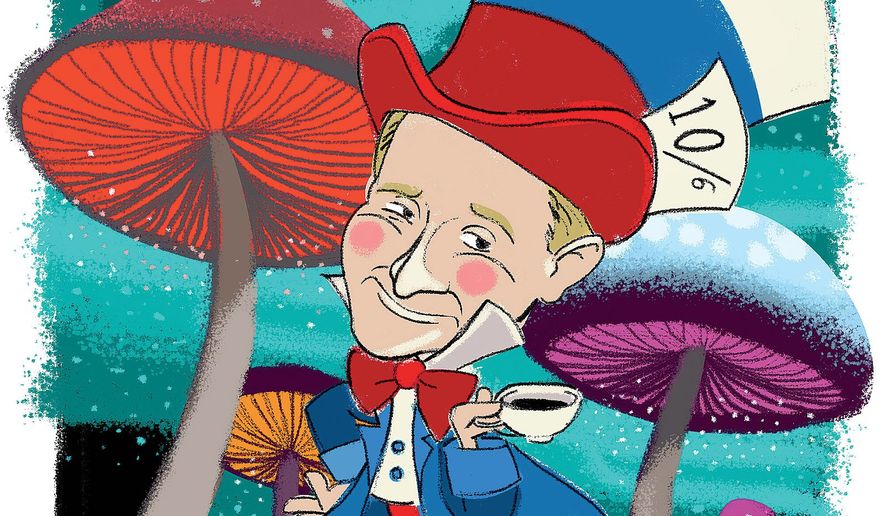OPINION:
Daniel Patrick Moynihan once said: “Everyone is entitled to his own opinion, but not to his own facts.” Democracies operate on that premise. You can think whatever you want about an event, but the facts are the facts. Unfortunately, that is no longer true. In our new information world, one can create his own facts, and by doing so alter the truth, something the Russians know well and we have yet to understand fully.
Moscow, still leading an evil empire, is using chemical weapons to poison its enemies in Britain and in Syria, and then hiding behind clouds of lies, dispersed squid-like through the Internet, to alter the facts lest the world condemn its barbarity. Since its attempted chemical murder of Sergei Skripal and his daughter Yulia in England and its complicity in the chemical murder of over 70 people in Syria, the Kremlin has used Russia-linked websites to unload a boatload of dishonesties into cyberspace in an effort to change the facts and create a different truth, one that points anywhere but at the people responsible for the attacks.
The latest Russian untruth is that the Syrian attack never happened. The 70-plus bodies don’t exist. There are no chemical weapons in Syria. Russia guaranteed their removal after all. It was a trick. A “White Helmet” organization used food to lure children and film them in a staged chemical attack.
It’s preposterous, of course, the big lie, a Russian knock-off of “Alice in Wonderland” where fantasy becomes reality, and white-helmeted first responders trying to save lives become villains. Dismissing it as make-believe is tempting but ignores the larger disinformation campaign the Russians have launched to divert attention away from their role in the killings.
Moscow’s believes that truth is not about what happened but rather about you can make people believe happened. It assumes one can change facts by delivering rapidly large quantities of false information through multiple media outlets. The deluge of deceit misleads and changes people’s perceptions of what actually occurred, leading them to believe different facts and ultimately a different, Russian friendly truth. Historically, changing facts has been a difficult thing to do. Not so much with the Internet.
Following both chemical attacks, Russia flooded the Web quickly with fake news. There was a four thousand percent increase in “Kremlin inspired” social media activity after the Skripal attack, and a two-thousand percent increase in Russian troll activity after the U.S. attack on Syria. Trolls are paid commentators who manipulate online stories for Moscow’s benefit. On April 14, Russia-linked accounts generated 32,083 tweets. The barrage of falsehoods flooded chat rooms and polluted online conversations with false information to distort people’s understanding of the facts and thereby change their perceptions of the truth.
Some fake news was Russia-generated. For example, Russia’s foreign minister, Sergei Lavrov, knowing his statements garner press attention, opined helpfully that maybe the May government tried to kill the Skripals to mask its failure to keep Brexit promises? Or maybe it was the British secret service “who are known for their abilities to act with license to kill?” His comments generated fake news stories in mainstream media outlets questioning British involvement in the killings. The conversation in many parts of the world shifted from being about Russia killing civilians to whether the British government could possibly have been involved in such a thing.
Other fake news repeated and amplified unfounded speculation and conspiracy theories by third parties.. The Skripals suffered from shellfish poisoning, the U.S. interfered with the Syria investigation, witnesses say there was no chemical attack, “White Hat” organizations staged it, anything to muddy the waters and deflect attention away from Russian involvement.
All these bots, trolls, fake accounts, tweets, and blogs create a Russian influence network, a Wonderland in which fantasy is passed off as reality and fake news can ricochet around, be repeated, vouched for, and amplified to influence a large unsuspecting audience. We have nothing comparable with which to tell the world the truth. So we sit idly by, and watch as Moscow turns fantasy into reality.
• Bruce M. Lawlor, a retired U.S. Army major general, is a former member of the Homeland Security Advisory Council and chief of staff of the Department of Homeland Security.




Please read our comment policy before commenting.